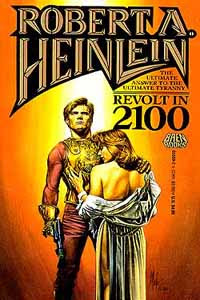I try not to say anything too often about the Anglican Communion controversies, but I’ve just read a letter from Rowan that I find really strange. I had thought I could understand – and sympathise – with his approach, but this one is staggering. It’ll take me some time to digest. It’s the abandonment of provincial authority which is mind-bending – he appears to be inviting dioceses to reject archi-episcopal authority. It’s as if he is expecting a) the broader communion to reject TEC; b) TEC to split; and c) some TEC dioceses to ‘abandon the sinking ship’.
If that IS what he’s arguing for then for the first time I might find myself really disagreeing with the ABC, something I never thought I’d say. It’ll take me some time to be convinced of that though.
The text of the letter is here.
Some analysis at Fr Jake and ‘The Blog’ (via MP).
I’d be keen to know what *Christopher or James Alison make of it all.
One other thing I’ve been pondering (partly as a spin off from the Learning Church talks – which I think I will do a write up of here, to compensate for the recording failure): the TEC struggle is often presented as being between the biblically conservative and the socially liberal. When thought of like that I’m quite clear that the ‘biblically conservative’ are no such thing and whatever else I might think about these issues I would not be standing with them. Yet there seems to me to be a large number of ‘middle voices’ (this is one) who don’t fit into either category. I take the line of episcopal authority very seriously – which is why I think the episcopi vagranti are much greater offences against orthodoxy than Gene Robinson. Assuming that he is, of course, and I’m not persuaded of that by any means. Actually that sounds mealy-mouthed. I recognise him as a Bishop, validly elected and consecrated, and I think it’s a good thing on the whole. I just think that there are lots of other issues and noises going on here which confuse the issue and TEC has this reliable habit of shooting itself in the foot and telling the rest of the world ‘go f___ yourself’ which is rather unattractive in a Christian body however understandable it is in terms of US history and culture.
I just wonder what the ‘blowback’ of all this is going to be in England. Clearly the Scottish Episcopal church will stick with TEC, and it won’t be the only one. I had been expecting the “biblical conservatives” to split off – but if Rowan’s strategy is what this letter indicates then he will be strengthening that faction – which is frankly a distinct minority in the CofE – and antagonising (inviting to leave?) a rather larger cohort of moderately progressive clergy and congregations. In other words, it seems to me that if the “biblical conservatives” were the ones to leave then the status quo was essentially tenable. There would be turbulence, but in ten, fifteen years time the CofE would be recognisably the same. The only difference would be that the closeted gay bishops would be publicly accepted gay bishops. This way round though…. a phrase about nails and coffins comes to mind, especially when taken in conjunction with the women bishops issue.
I’m just worried, much more worried than I have been for a while.
UPDATE: I found this quite comforting as a summary of Rowan’s letter:
It seems to me that Rowan Williams is implying the following:
– ‘Windsor bishops-and-dioceses’ should not contemplate realignment with ‘other provinces’ because to do so would not ‘improve’ their stature in terms of Anglican unity and identity.
– ‘Windsor priests’ should not contemplate realignment with ‘other provinces’ because to abandon sacramental [union] with their ‘Windsor Bishop and Diocese’ would threaten their stature in terms of Anglican unity and identity.






